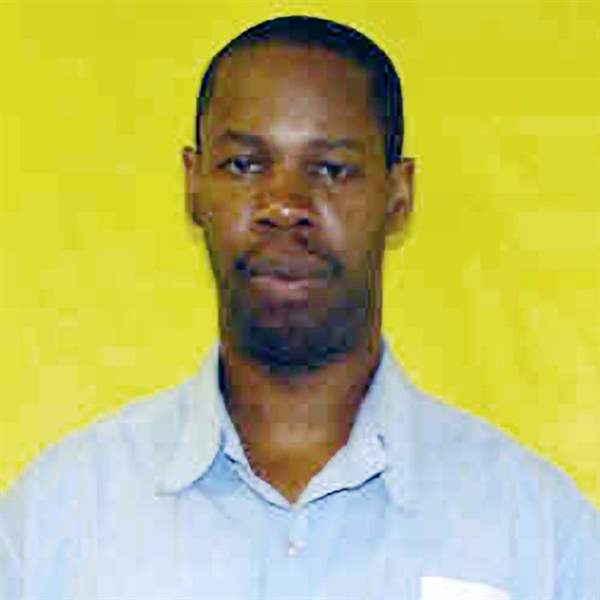
Man may win parole, thanks to Skow letter
7/9/2009
Knighten
NOT BLADE PHOTO

Knighten
Since his 1997 conviction for murder and subsequent sentence to life in prison, Willie Knighten, Jr., has maintained he wasn't guilty.
But it wasn't until his innocence was championed by the man who put him behind bars - Judge William Skow, who died last month - that Knighten's claims brought him significantly closer to freedom.
The Ohio Parole Board recently released a clemency report recommending to Gov. Ted Strickland that Knighten's sentence be commuted so that he is immediately eligible for parole.
A key point in the decision, according to the report, was support for Knighten by Judge Skow, who presided over the bench trial in Lucas County Common Pleas Court and found Knighten guilty of murder in a 1996 drive-by shooting.
"Over the past years, I have become increasingly persuaded that my findings were erroneous and that - in fact - it is more likely than not that Willie Knighten was innocent of the underlying charges," Judge Skow wrote in a Feb. 5, 2009, letter to a parole officer at the Ohio Parole Board. "This case has weighed heavily on my mind ever since."

Skow
The judge died June 21, just weeks before the Ohio Parole Board made its recommendation.
Knighten, now 37, was found guilty June 5, 1997, of murder and attempted murder, both with gun specifications, and was sentenced to 18 years to life in prison.
He was convicted of the murder of Irving Turner, 29, who was shot in the head in the 1100 block of Fernwood Avenue, and of attempted murder in the shooting of Adaris Welch, who was shot in the shoulder as he ran from the area.
Judge Skow, who heard the case after Knighten waived his right to a jury, said at the time that alibi witnesses who claimed the defendant was at a party when the shooting occurred were not credible. In November, 1997, he denied a motion for a new trial saying, "I remain as convinced as I was at the time of the verdict."
Since then, Knighten has remained incarcerated at Allen Correctional Institution. Currently, he is first eligible for parole in October, 2010.
In a letter written just months before his death, Judge Skow admitted that there was "no single fact or circumstance" that exonerates Knighten of the crime but rather "an accumulation of facts and anomalies that have led me to this belief, buttressed by the intensity of his protestations." He wrote that he had been sent "at least 100 letters" by Knighten.
The judge, who left the Common Pleas Court bench in 2004 after being elected to Ohio's 6th District Court of Appeals, said in his letter that several significant errors were made during Knighten's trial, and he criticized the police investigation.
"Mr. Knighten's attorney chose to put on a very shaky alibi defense which did not help his cause though this does not excuse my error in not analyzing the state's case dispassionately, apart from the alibi testimony," he wrote.
Lima attorney Kenneth Rexford, who did not handle the trial but who has worked on the Knighten case for several years and believes in his innocence, said Judge Skow's change of heart was "of huge importance."
He said that there were several avenues that could have been pursued but an appeal to the governor won out.
"In Willie Knighten's case it could have taken several years in winding through the courts. His character caused us to think, 'Let's go to the governor,'•" Mr. Rexford said. "It seemed like the right route, and it was."
According to the most recent numbers published by the Ohio Adult Parole Authority, 15 applications were submitted for clemency in January. Only one, a death-row commutation, was approved.
In the 2008 fiscal year - from July, 2007, to June, 2008 - 226 clemency applications were submitted, in which five sentences were commuted and 32 pardons were granted.
A parole release consideration occurs when an offender becomes statutorily eligible for release based on his sentence, unlike a clemency request, which can be granted only by the governor, a state prisons spokesman said.
In a clemency situation, the offender's sentence is not considered and it is pursued only if the offender submits an application.
Among the three forms of clemency: a commutation, in which the sentence is reduced; a pardon, in which an offender's sentence is forgiven, or a reprieve, which is a temporary delay of the sentence. A reprieve is applicable only in death-penalty sentences.
In each case, the governor relies on a recommendation from the Ohio Parole Board.
According to the Ohio Department of Rehabilitation and Correction, a commutation is given when the governor approves reducing an inmate's sentence. In this case, the parole board voted 8-0 to recommended the commutation.
A Strickland spokesman said the governor has received the report but has not made a decision.
If approved, the case returns to the parole board and Knighten would undergo a parole hearing.
In its report, the parole board concluded that Knighten was "deserving of commutation of sentence to render him immediately parole eligible."
Listed at the top of its bases for the recommendation was "the extraordinary support for clemency from Judge William J. Skow."
Assistant County Prosecutor J. Christopher Anderson, who tried the case more than a decade ago, said the key evidence in the case came from eyewitnesses. He said he refrained from providing input on the decision but that he did not oppose the board considering clemency in the case.
In his interview with the board, Knighten maintained his innocence but said he accepts his time in prison "as justified for the crimes he did commit and for the lifestyle he led," the report said.
Namely, Knighten admitted that at the time of his trial he had an affiliation with a gang and a criminal lifestyle, the report said.
Knighten's parents, who also appeared before the parole board on his behalf, could not be reached for comment.
In his concluding paragraph, Judge Skow said he felt a "deep responsibility for Willie's predicament."
"Unquestionably he shouldn't have been gang-affiliated, and his record prior to December, 1996, was not pristine, but he has now served more than 12 years for an offense he likely did not commit," the judge wrote.
Contact Erica Blake at:eblake@theblade.com
or 419-213-2134.